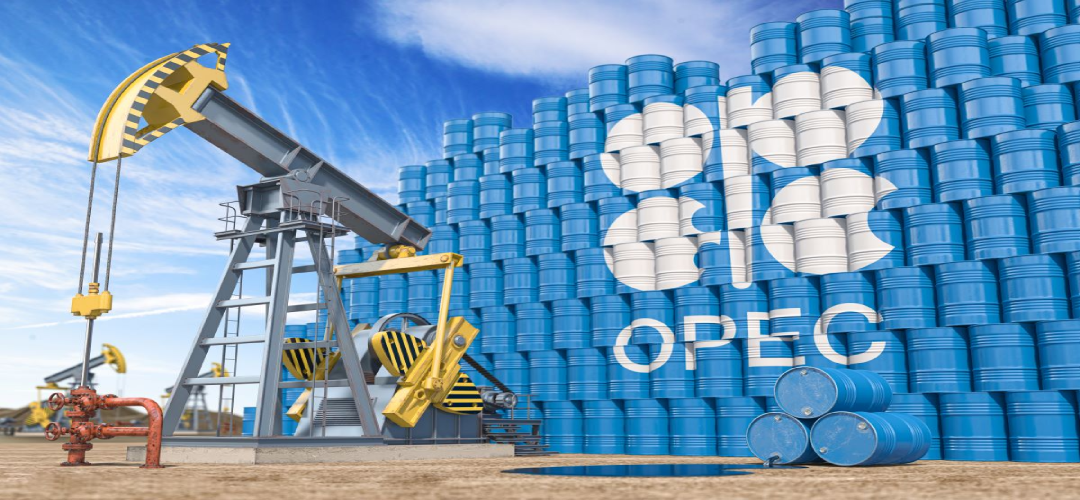Looming Energy Hikes?
April 6, 2024 | Expert Insights

The OPEC+ alliance, a group of 22 oil-producing nations led by Saudi Arabia and Russia, has announced an extension of voluntary production cuts. This move is intended to bolster oil prices in a global economic climate facing uncertainty.
The decision has significant implications for both the global economy and the economies of individual member states, including India.
Background
In a move designed to bolster the oil market during a period of global economic uncertainty, OPEC+ members recently reached an agreement to extend their oil production cuts into the second quarter of 2024. This decision signifies a proactive approach by the alliance to provide additional support and stabilize the market.
Saudi Arabia, the leader within OPEC, will lead these efforts by extending its existing voluntary production cut of 1 million barrels per day (bpd) until the end of June. This will effectively restrict the country's output to approximately 9 million bpd. The implemented cuts are not intended to be permanent; a gradual restoration is planned based on the prevailing market conditions once the second quarter concludes.
Russia, another influential alliance member, mirrored Saudi Arabia's strategy by announcing a production cut of 471,000 bpd for the second quarter. Russia's Deputy Prime Minister, Alexander Novak, emphasized the temporary nature of these reductions, stating that "These additional cuts will be gradually restored depending on market conditions."
These actions build upon previous cuts implemented in 2023, encompassing both oil output and exports. This collective effort by major energy producers underscores their shared goal of driving up market prices.
The UAE, Kuwait, Iraq, and Kazakhstan have also joined the initiative, pledging to extend their existing voluntary production cuts until the end of June. Cumulatively, the OPEC+ alliance has enforced production cuts exceeding 5 million barrels per day since late 2022. This substantial reduction in output signifies a significant move by the alliance to influence the global oil market.

Analysis
The decision to extend production cuts is inextricably linked to the dramatic rise in oil prices witnessed in 2022, a direct consequence of Russia's invasion of Ukraine. This geopolitical event sent shockwaves through the global oil market, propelling prices to a staggering $140 per barrel. This surge translated into substantial profit gains for the oil industry.
Further complicating the situation, the West's response in the form of sanctions on Russia's energy exports, intended to cripple the Russian economy, has had an unintended consequence. These sanctions have forced Russia to redirect its oil supplies towards alternative markets, particularly nations like China and India. This shift in supply chains has undoubtedly influenced the calculus of OPEC+ members when deciding to extend production cuts.
The announcement on March 3rd regarding the production cut extension triggered a predictable response in the oil market – a price surge. This immediate reaction highlights the delicate balance and sensitivity of the global oil market to such decisions. The US West Texas Intermediate (WTI) surpassed the significant threshold of $80 a barrel for the first time since November, indicating a substantial jump. Similarly, North Sea Brent Crude reached its highest point in a month, closing at $83.55 per barrel. These price fluctuations underscore the significant influence OPEC+ wields over the global oil market.
Formed in 2016, OPEC+ brought together the original 13 OPEC members, led by Saudi Arabia, with an additional ten countries, most notably Russia. This broader alliance aimed to achieve greater control over oil prices by presenting a united front against rising competition, particularly from the United States. However, cracks have begun to appear in this facade.
One key challenge is the issue of unanimity. Saudi Arabia, the de facto leader, has on occasion implemented production cuts without the full backing of all members. This unilateral action raises concerns about the alliance's internal cohesion. Analysts like to view such actions as a potential warning sign of a weakening OPEC+. Furthermore, Angola's recent departure from the alliance in December 2023 due to disagreements over production cuts exemplifies the potential for fragmentation.
Analysts emphasize the importance of broader participation. For OPEC+ to maintain a unified front and effectively influence the market, "more countries" need to officially contribute to production cuts. This highlights the delicate balancing act the alliance faces – maintaining internal cohesion while achieving its collective goals in a volatile market.
The decision by OPEC+ to extend production cuts carries a double-edged sword for the global economy, with both positive and negative consequences. On one hand, it can lead to increased revenue for oil-producing nations, potentially stimulating their economies. However, the more immediate and widespread impact is likely to be negative.
Higher oil prices, a direct consequence of production cuts, can translate into a domino effect across the global economy. Transportation costs, heavily reliant on oil, are likely to rise. This increase will inevitably ripple through the supply chain, pushing the prices of a wide range of goods and services. Consumers will face the brunt of this burden, experiencing sticker shock at the grocery store and gas pump. Businesses, too, will grapple with higher operational costs, potentially leading to profit margin squeezes and ultimately impacting hiring and investment decisions.
With a significant dependence on foreign oil supplies, India faces the prospect of a steeper import bill due to rising prices. The Indian government has taken steps to mitigate the impact of rising oil prices; measures like reducing excise duties on petrol and diesel can provide temporary relief for consumers. However, these measures' long-term sustainability and effectiveness in countering the broader economic effects of OPEC+'s production cuts remain to be seen.
Assessment
- The ripple effects are particularly concerning for major oil importers like India. Essentially, India will have to spend more on oil imports, leaving less money available for other crucial areas like infrastructure development or social welfare programs. This could have repercussions for the government in an election year, although the real impact will be felt only after the new government is in place.
- Furthermore, rising oil prices can exacerbate inflationary trends in the Indian economy. This "double whammy" can disproportionately impact low-income households, who spend much of their income on basic necessities. Businesses, too, will face a squeeze on their profit margins, potentially leading to job cuts or price hikes for consumers.
- India, along with other major oil-importing nations, will need to carefully monitor the situation and consider a range of policy options to navigate this challenging economic landscape.








Comments